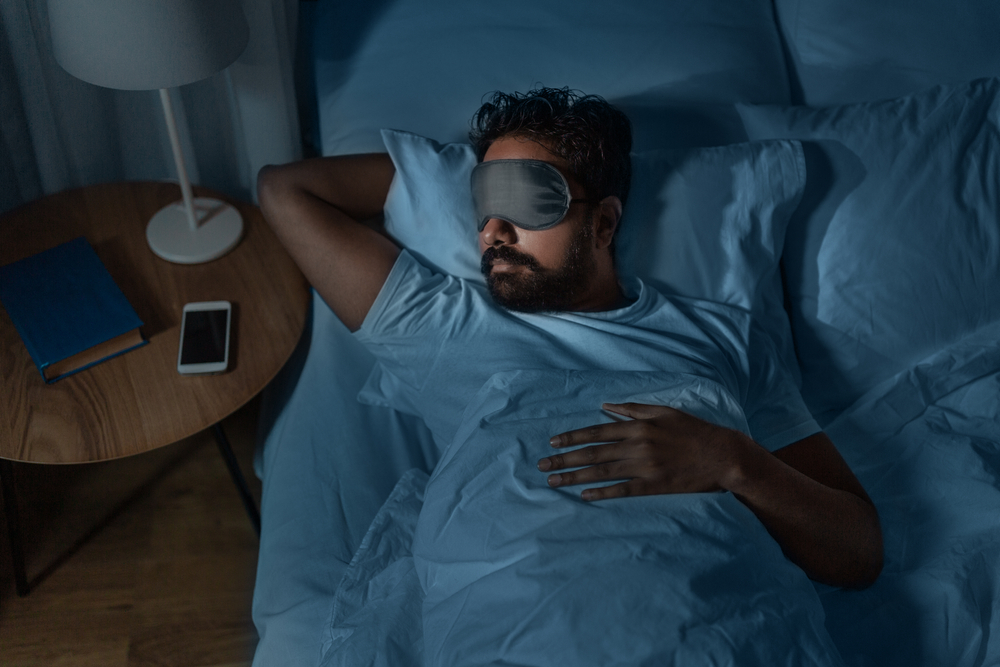In an era where quality sleep is both a luxury and a necessity, melatonin stands out as a beacon for those yearning for nocturnal respite.
In today’s bustling world, the quest for a restful night’s sleep is one that many undertake, yet few truly master. Amidst the myriad of remedies, gadgets, and routines proposed to alleviate insomnia, one natural solution has emerged as particularly intriguing: melatonin.
What is Melatonin?
A hormone produced by the pineal gland in the brain, melatonin plays a pivotal role in regulating our sleep-wake cycles. As darkness falls and the night envelops us, our bodies increase melatonin production, signalling that it’s time to wind down and retreat into slumber.
Conversely, as dawn approaches and sunlight permeates our environment, melatonin levels wane, nudging us awake. But beyond its natural occurrence, supplemental melatonin has become a popular sleep aid, sparking a wealth of curiosity, acclaim, and scepticism. This guide delves deep into the world of melatonin, demystifying its intricacies and offering insights into its potential benefits and caveats. Whether you’re a sleep-deprived soul seeking solace or a curious reader eager to understand more, join us on this journey through the realm of sleep’s natural ally.
Melatonin as a Supplement
It isn’t only found naturally within the body. Due to its role in regulating sleep, synthetic melatonin has been produced and sold as an over-the-counter supplement in many countries1. Many people take melatonin supplements to combat insomnia, jet lag, or other sleep disturbances.
When ingested as a supplement, melatonin can help adjust the body’s internal clock and promote sleep onset, especially in environments where the natural production of melatonin is hindered, such as in conditions of artificial light or time zone changes.
While melatonin supplements are generally considered safe for short-term use, it’s important to consult with a healthcare professional before starting any new supplement regimen.
Dosage, timing, and the presence of other medications can all influence the effectiveness and safety of supplementation.
While the optimal dose of melatonin can vary based on the individual and the intended use, studies have shown that short-term use of it in doses ranging from 0.3 mg to 10 mg appears to be safe for most adults.
However, higher doses might cause side effects, and long-term effects of extended melatonin use are not well-documented, so it’s always essential to consult with a healthcare professional before starting or adjusting the regimen.
Benefits of Melatonin Supplements
For those struggling with sleep disturbances, melatonin supplements can be a valuable aid.
Here’s a rundown of some noteworthy benefits:
Promotes Sleep
It aids in adjusting the body’s internal clock, especially beneficial for shift workers or jet lag sufferers.
Antioxidant Properties
Melatonin acts as a potent antioxidant, which can neutralise harmful radicals in the body.
Supports Eye Health
Studies suggest that it may safeguard eyes from age-related damage.
Dosage and Side Effects
While supplements can be beneficial, it’s essential to use them judiciously. Starting with a low dose (0.5-1 mg) is advisable, and individuals can gradually increase if necessary. Some potential side effects include:
- Dizziness
- Headaches
- Nausea
While we don’t fully understand its long-term effects, it can unpredictably interact with other medications. Therefore, it’s vital to consult a healthcare professional for safety and suitability.
Not everyone finds it effective as a sleep aid. Some people may not see improved sleep patterns or may need higher doses to feel any effect. This variation is partly due to “melatonin resistance.” This term describes some individuals’ reduced sensitivity to melatonin supplementation.
Genetics, age, specific medical conditions, and extended melatonin use can contribute to this resistance. Extended use might even reduce the body’s responsiveness over time. Everyone reacts differently to supplements. Hence, regular checks and professional advice ensure safe and optimal results.
Natural Ways to Boost Melatonin
If you’re wary of diving straight into supplements, there are natural means to enhance your melatonin production:
Limit Screen Time
The blue light emitted from screens can suppress its secretion.
Darker Sleeping Environments
Make your bedroom conducive to sleep with thick curtains and minimal artificial lighting.
Tart Cherry Juice
Some studies suggest that this juice can increase melatonin levels.
Essential Insights into its Sleep Magic
Remember, while supplements provide a quick fix, integrating holistic habits into your routine can offer long-lasting results.
Harnessing melatonin’s potential can be a stepping stone to rejuvenating nights and energetic days.
Disclaimer: The information provided in this article is for educational purposes only, and should not be considered medical advice. Please consult with a healthcare professional for more personalised guidance and various treatment options that may be available to you.
References
- Human pineal physiology and functional significance of melatonin – PubMed. (2004, December 1). PubMed. https://doi.org/10.1016/j.yfrne.2004.08.001
- Functional MT1 and MT2 melatonin receptors in mammals – PubMed. (2005, July 1). PubMed. https://doi.org/10.1385/ENDO:27:2:101
- Action spectrum for melatonin regulation in humans: evidence for a novel circadian photoreceptor – PubMed. (2001, August 15). PubMed. https://doi.org/10.1523/JNEUROSCI.21-16-06405.2001
- Do plasma melatonin concentrations decline with age? – PubMed. (1999, November 1). PubMed. https://doi.org/10.1016/s0002-9343(99)00266-1
- Effects of exogenous melatonin on sleep: a meta-analysis – PubMed. (2005, February 1). PubMed. https://doi.org/10.1016/j.smrv.2004.06.004
- The Safety of Melatonin in Humans – PubMed. (2016, March 1). PubMed. https://doi.org/10.1007/s40261-015-0368-5














